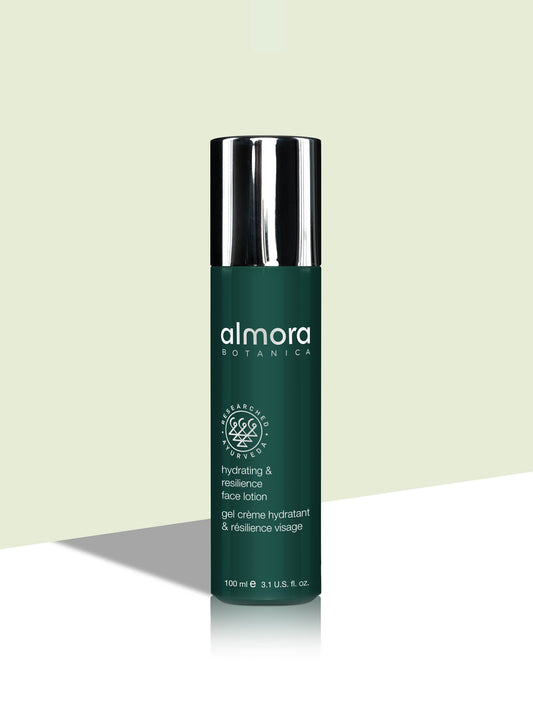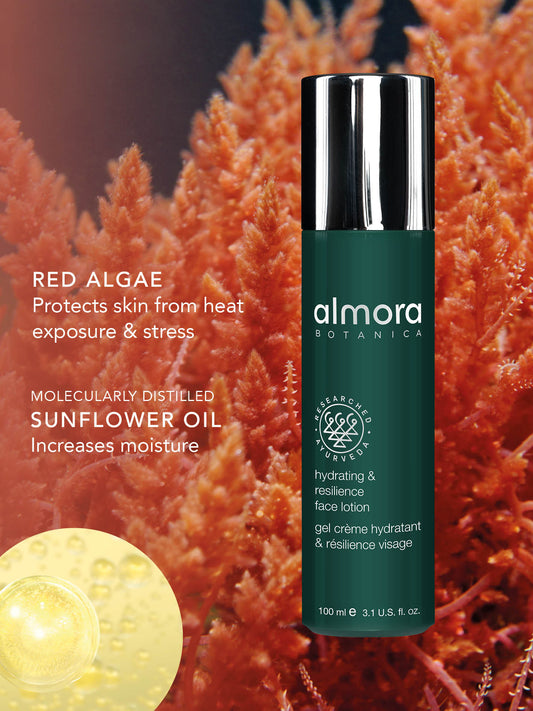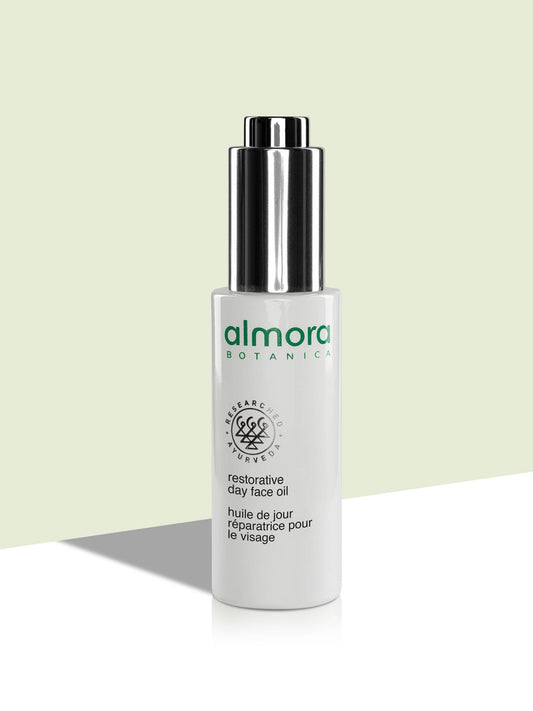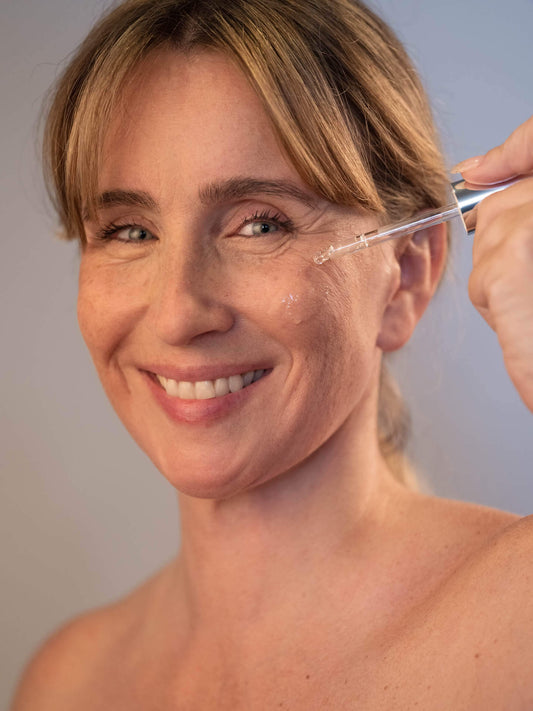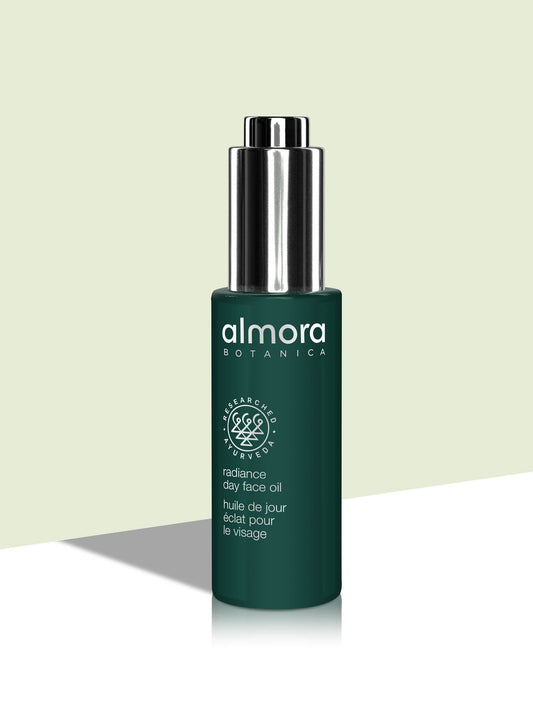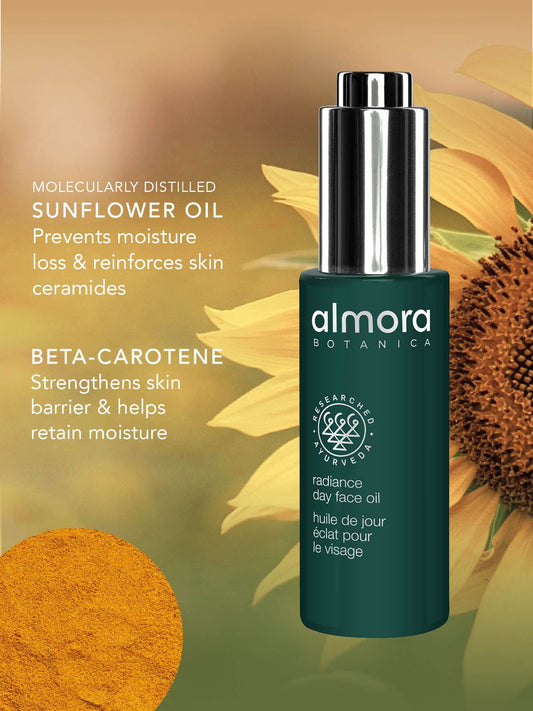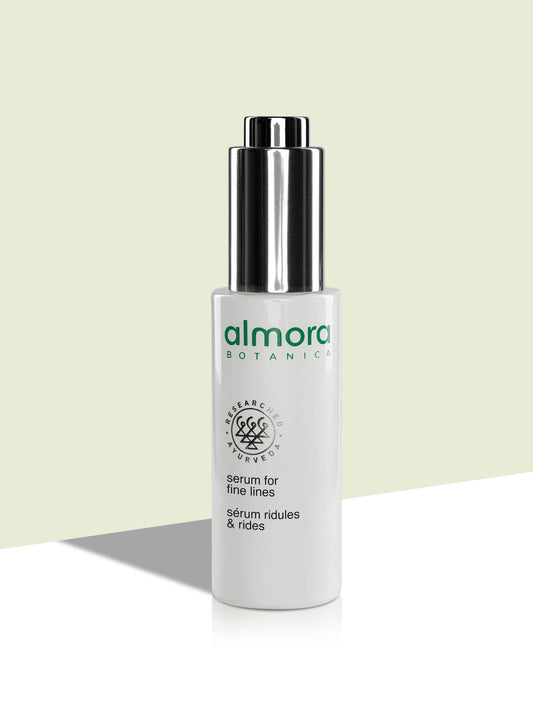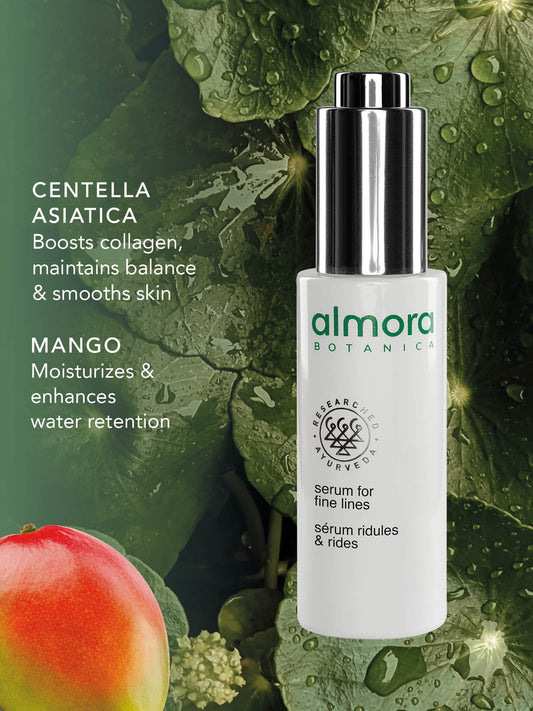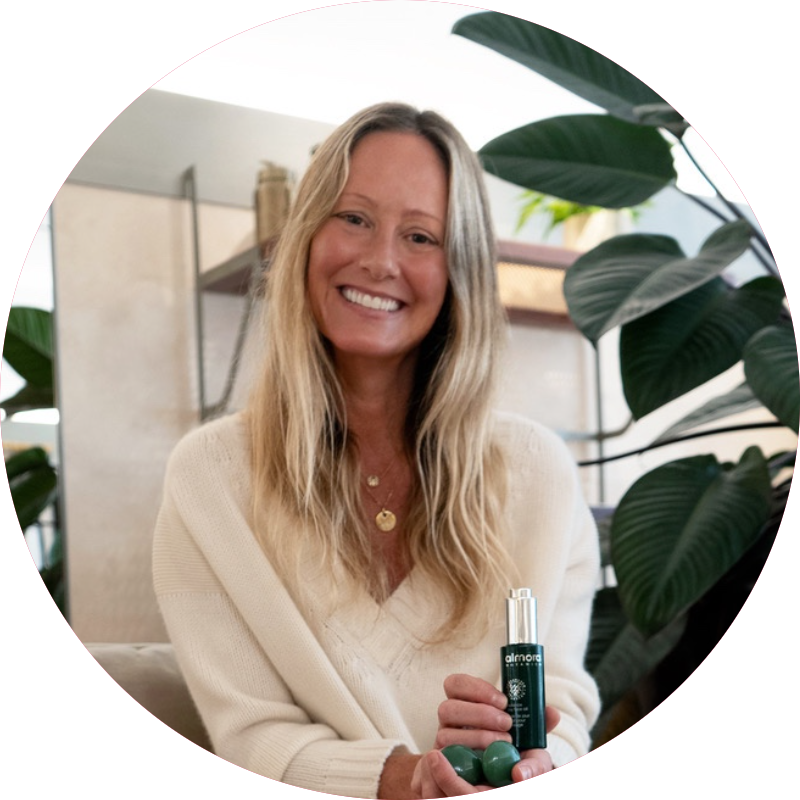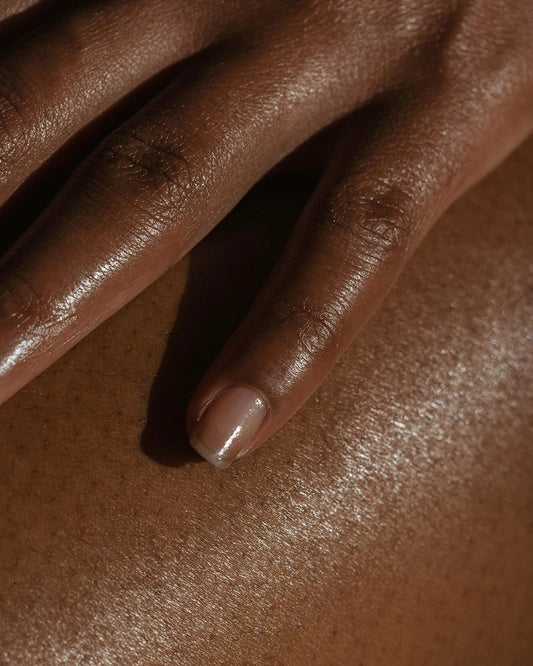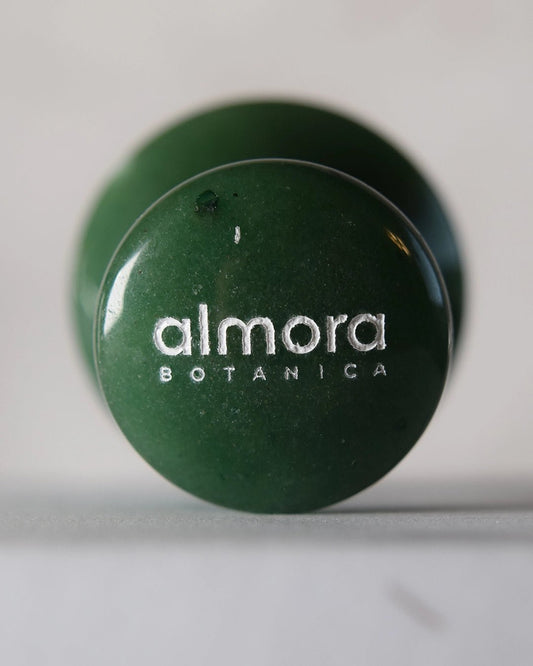
What Are the Biggest Skincare Concerns for Those With Dry Skin?
Dry and dehydrated skin requires special care to maintain its health and vitality. Here are the top five common skin concerns for individuals with this skin type:
Flakiness and Rough Texture: Dry and dehydrated skin often feels rough and may develop flaky patches, making it challenging to achieve a smooth complexion. Our multi-level Hydrating & Resilience Face Lotion has moisturizing sunflower oil and red algae extract to help skin from drying out in harsh weather and fights oxidative stress to boost ceramide synthesis and leave your skin hydrated, plump, and firm.
Tightness and Discomfort: Dry skin can feel tight, itchy, or uncomfortable due to the lack of moisture. This discomfort is a common concern. Almora Botanica’s Radiance Day Oil contains a proprietary Elixir SAPTA COMPLEX ©, a unique ultra-light natural blend of seven oils, to flash-penetrates into dermal layers for ultra hydration and silky smooth skin. For mature skin, use the Restorative Day Oil which also contains the SAPTA COMPLEX ©, to restore and refine texture and deeply hydrate skin.
Fine Lines and Wrinkles: Dry skin is more prone to premature aging, resulting in the development of fine lines and wrinkles, particularly around the eyes and mouth. After cleansing, apply the Serum for Fines Lines which has concentrated mango fruit pulp extract to reduce dryness, prevent moisture loss, and centella asiatica, which helps reduce the appearance of fine lines and wrinkles.
Sensitivity to Harsh Weather: Dry and dehydrated skin can be more sensitive to harsh weather conditions, such as cold winds and dry air, leading to increased irritation. Remember to always moisturize daily to deeply hydrate and prevent moisture loss with a product like the Hydrating & Resilience Face Lotion.
Dullness and Lack of Radiance: Dehydrated skin may appear dull and lackluster. The absence of proper hydration can affect the skin's natural glow. At night, replenish dermal lipids daily with the Nourishing Night Face Oil to boost skin hydration. Active ingredients like sunflower and borage will perform overnight to leave skin visibly soft and plumped for a new daytime glow.
Addressing these concerns requires a skincare routine focused on hydrating and moisturizing the skin. This includes using gentle cleansers, hydrating serums, and rich moisturizers. Additionally, drinking plenty of water and using a humidifier in dry environments can aid in maintaining skin moisture. By addressing these concerns with a tailored skincare approach, dry and dehydrated skin can regain its suppleness and radiance.
Enjoy Beautifully Hydrated and Radiant Skin
Dry and dehydrated skin can be uncomfortable and challenging to manage, but understanding the hormonal factors at play and making thoughtful food choices can significantly improve your skin's condition. Hormonal imbalances can affect the health and moisture levels of your skin.
These imbalances can result from various factors such as stress, dietary choices, and even underlying medical conditions. Balancing hormones is a crucial step in addressing dry and dehydrated skin.
Here's a comprehensive guide to help you balance hormones and choose the best foods to nourish dry and dehydrated skin:
- Stress Management: High-stress levels can disrupt hormone balance. Incorporate stress-reduction techniques such as meditation, yoga, face yoga fitness, or mindfulness to promote hormonal equilibrium.
- Regular face yoga fitness: Routines can target facial muscles, stimulate blood flow, boost collagen, and enhance skin tone. Combine with regular physical activity which can enhance oxygen and nutrient delivery to skin cells and reduce stress.
- Quality Sleep: Prioritize getting 7 to 9 hours of sound sleep nightly for skin cell repair and hydration. The blue light from screens can disrupt melatonin production, making it harder to sleep, so be sure to tuck these away and disconnect for restful slumber.
- Limit Sugar and Processed Foods: High-glycemic foods and sugary snacks can cause blood sugar spikes, leading to hormonal fluctuations. Instead, consume foods rich in antioxidants, like berries, leafy greens, and colorful vegetables which can combat free radicals and reduce inflammation. Foods rich in vitamin E, such as almonds, sunflower seeds, and spinach, can nourish and protect your skin from dehydration. Remember to include sources of omega-3 fatty acids in your diet, such as avocados, fatty fish, flaxseeds, and walnuts to keep your skin supple and support hormone production.
- Hydration: Stay well-hydrated and maintain skin moisture by drinking plenty of water and consuming hydrating foods like watermelon and cucumber or drinking coconut water. In Ayurveda, starting your day with a glass of warm water can help flush out toxins and kickstart your digestive system.
- Consulting a Professional: If dryness and dehydration persist despite dietary changes and lifestyle adjustments, consider consulting a dermatologist or healthcare provider. They can recommend personalized skincare routines and may suggest topical products or treatments to address your specific skin concerns.
Balancing hormones and choosing the best foods for dry and dehydrated skin is a holistic approach that can yield positive results. By incorporating these tips into your daily life, you can take significant steps toward achieving healthier, well-hydrated, and more vibrant skin.
Discover Our Dry Skincare Solution Must-Have
Read More Skincare Stories
Blog posts
Read More Skincare Stories
A summary of our posts.


